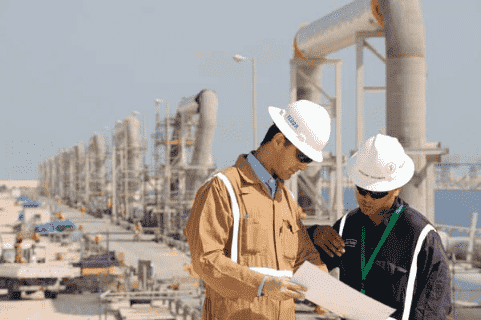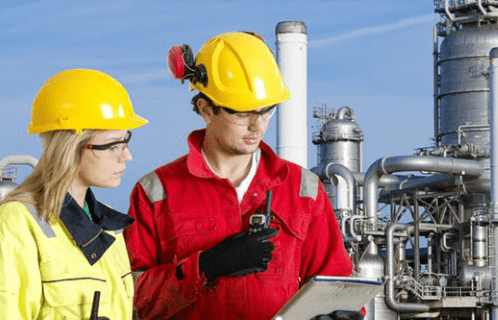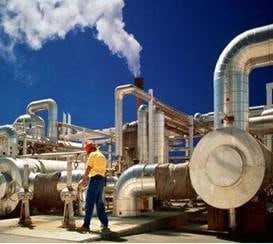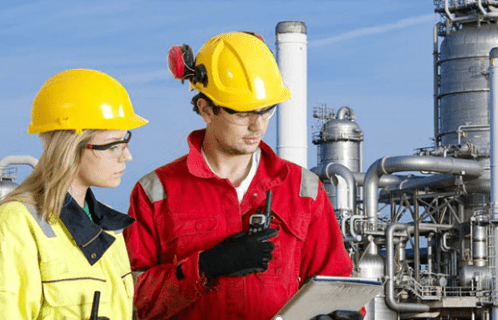COURSE OVERVIEW
PE0050 : Elements of Applied Process Engineering

OVERVIEW
| COURSE TITLE | : | PE0050 : Elements of Applied Process Engineering |
| COURSE DATE | : | Oct 07 - Oct 11 2024 |
| DURATION | : | 5 Days |
| INSTRUCTOR | : | Mr. Robert Harvey |
| VENUE | : | Abu Dhabi, UAE |
| COURSE FEE | : | $ 5500 |
| Request For Course | ||
Course Description
This course covers the application of chemical engineering theory to the practical demands of applied process engineering. The course will be presented in interactive format with many industrial examples and case studies. Participants will have the opportunity to solve sample problems with the help of the instructor.
The first part of the course will cover the basics of unit operations and the development of an effective process. Topics included are the preparation of process flow diagrams (PFDs) and P&IDs. These diagrams represent the organization and control of equipment in a petrochemical plant or refinery.
This is followed by the calculation of material flows and the concept of a material balance. Included are techniques on the sizing and evaluation of piping networks (including pipe segments, fittings, parallel piping systems, valves and controls equipment).
Pressure drop calculations are presented for a variety of systems – ordinary Newtonian liquids, vapors and mixed phase systems, reacting systems, packed beds and fluidized beds.
Next, the design and evaluation of major fluid flow equipment is presented. This includes pumps (all types) and compressors as well as fans, vacuum pumps, ejectors and educators. The associated drivers for these machines are discussed, especially steam turbines and the steam-power cycle found in all petrochemical plants and refineries
The materials portion of the course is followed by a presentation on energy balances and heat transfer equipment. Refrigeration energy balance, compressor selection, and power requirements are covered. Focus is on the cycles typically found in refineries and petrochemical plants, including cascaded and open systems.
In the next section of the class, materials of construction (MOC) are discussed and selection guidelines presented. Finally, heat transfer equipment selection, design and rating are discussed.
On completion of this course, participants will have the ability to understand and prepare PFDs and P&IDs, perform material/heat balance and fluid flow calculations. Participants will also be able to design, rate and select the major process equipment which accounts for most of the capital investment in refineries and petrochemical plants.
During the class, participants will be given detailed procedures and worksheets for performing the appropriate calculations. Many of the examples have been developed on EXCEL; these programs will be given to the participants on a CD. The tools provided should aid in the design and operation of chemical systems. This is an interactive course with numerous case studies and a CD with solved problems, worksheet and shortcut techniques.
The first part of the course will cover the basics of unit operations and the development of an effective process. Topics included are the preparation of process flow diagrams (PFDs) and P&IDs. These diagrams represent the organization and control of equipment in a petrochemical plant or refinery.
This is followed by the calculation of material flows and the concept of a material balance. Included are techniques on the sizing and evaluation of piping networks (including pipe segments, fittings, parallel piping systems, valves and controls equipment).
Pressure drop calculations are presented for a variety of systems – ordinary Newtonian liquids, vapors and mixed phase systems, reacting systems, packed beds and fluidized beds.
Next, the design and evaluation of major fluid flow equipment is presented. This includes pumps (all types) and compressors as well as fans, vacuum pumps, ejectors and educators. The associated drivers for these machines are discussed, especially steam turbines and the steam-power cycle found in all petrochemical plants and refineries
The materials portion of the course is followed by a presentation on energy balances and heat transfer equipment. Refrigeration energy balance, compressor selection, and power requirements are covered. Focus is on the cycles typically found in refineries and petrochemical plants, including cascaded and open systems.
In the next section of the class, materials of construction (MOC) are discussed and selection guidelines presented. Finally, heat transfer equipment selection, design and rating are discussed.
On completion of this course, participants will have the ability to understand and prepare PFDs and P&IDs, perform material/heat balance and fluid flow calculations. Participants will also be able to design, rate and select the major process equipment which accounts for most of the capital investment in refineries and petrochemical plants.
During the class, participants will be given detailed procedures and worksheets for performing the appropriate calculations. Many of the examples have been developed on EXCEL; these programs will be given to the participants on a CD. The tools provided should aid in the design and operation of chemical systems. This is an interactive course with numerous case studies and a CD with solved problems, worksheet and shortcut techniques.
TRAINING METHODOLOGY
This interactive training course includes the following training methodologies:
LecturesWorkshops & Work Presentations
Case Studies & Practical Exercises
Videos, Software & Simulators
In an unlikely event, the course instructor may modify the above training methodology for technical reasons.
VIRTUAL TRAINING (IF APPLICABLE)
If this course is delivered online as a Virtual Training, the following limitations will be applicable:
| Certificates | : | Only soft copy certificates will be issued |
| Training Materials | : | Only soft copy materials will be issued |
| Training Methodology | : | 80% theory, 20% practical |
| Training Program | : | 4 hours per day, from 09:30 to 13:30 |
RELATED COURSES

PE0248 : Process Plant Shutdown, Turnaround, Troubleshooting, Critical Activities, Isolation, Start-up & Commissioning
- Date: Feb 02 - Feb 06 / 3 Days
- Location: Doha, Qatar
- Course Details Register

PE0785 : Refinery Operational Economics, Planning & Profitability
- Date: Feb 02 - Feb 06 / 3 Days
- Location: Kuwait City, Kuwait
- Course Details Register

PE0230 : Process Plant Start-up, Commissioning & Troubleshooting
- Date: Feb 02 - Feb 06 / 3 Days
- Location: Cairo, Egypt
- Course Details Register

PE0785 : Refinery Operational Economics, Planning & Profitability
- Date: Feb 02 - Feb 06 / 3 Days
- Location: Kuwait City, Kuwait
- Course Details Register
